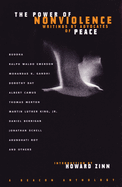 The Tim Wise 2001 essay Who’s Being Naive? War-Time Realism Through the Looking Glass is the penultimate chapter in The Power of Nonviolence: Writings by Advocates of Peace. This essay continues the Post-Vietnam to the Present (1975- ) section of the book. Wise is an anti-racism educator and author.
The Tim Wise 2001 essay Who’s Being Naive? War-Time Realism Through the Looking Glass is the penultimate chapter in The Power of Nonviolence: Writings by Advocates of Peace. This essay continues the Post-Vietnam to the Present (1975- ) section of the book. Wise is an anti-racism educator and author.
His essay complements the previous Arundhati Roy essay War is Peace. While Roy upholds the polite –but firm– criticism of a foreigner, Wise bluntly takes his fellow Americans to task for the Afghan War. As someone who forces Whites to face up to their own privilege in US society, Wise is at ease in ripping apart pro-war arguments in kitchen table language.
The criticism put forth by Roy and Wise reinforce each other by coming to the same conclusions from both external and internal vantage points. Both 2001 essays were written when the Afghan invasion was fresh, and they have proved to be prescient as the Afghan War has dragged on for a dozen years. Reminds me of the just departed Pete Seeger masterpiece, Waist Deep in the Big Muddy. Continue reading Wise: War is Naive


